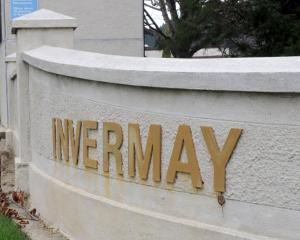Dunedin Mayor Dave Cull led the delegation to meet Economic Development Minister Steven Joyce last night to discuss the proposed downsizing of the agricultural science research centre in Dunedin.
Mr Cull said the minister listened to the group's concerns and said he intended to seek assurances from AgResearch's board it fully understood all the potential implications of its proposal.
''His words were that he intended to test AgResearch's proposal thoroughly,'' Mr Cull said.
''I think that is as good as we could expect; that he listened to and will seriously consider the points we put around unintended consequences of the proposal.''
The delegation also included Environment Southland chairwoman Ali Timms, former Dunedin MPs Katherine Rich and Pete Hodgson, and Otago Regional Council chairman Stephen Woodhead and chief executive Peter Bodeker.
Mr Woodhead said he thought the meeting was constructive.
''I believe our case assisted the minister to understand the potential unintended consequences of the proposal, by ensuring he understands the wider collaborative groupings that occur and will be affected,'' he said.
The delegation relayed concerns gathered from a summit held in Dunedin on August 14, attended by more than 50 southern regional organisations.
The group told Mr Joyce any reduction in roles at Invermay would have a serious economic and strategic impact, locally and nationally.
From Dunedin's perspective, there was potential for more smart businesses and jobs to be created from Invermay being located in the city, the delegation told Mr Joyce, during a 45-minute presentation.
The expertise at Invermay was crucial to ensure the continuation of leading environmental research related to farming and other industries which contributed significantly to the Otago and Southland economies.
And nationally, the country would lose a major scientific capacity.
At the heart of the AgResearch proposal was a wish to create hubs at Lincoln and Massey Universities that might drive primary production productivity, and boost GDP.
The proposal had generated substantial regional dismay, much more so than might be expected from the loss of 85 jobs from the area, and much more than had any other episode of lost jobs or lost companies in recent times, they said.
''We view it as a serious strategic error for New Zealand, both for primary, production, industry and for science,'' Mr Cull said.
Since the summit, southern leaders have been discussing the Invermay situation with AgResearch chief executive Tom Richardson and chairman Sam Robinson, but AgResearch did not want to meet until after staff submissions closed on September 26.
''We wanted the opportunity to show [the minister] the analysis by AgResearch has left some key gaps,'' Mr Cull said.
Mrs Rich said she believed the minister had responded ''completely appropriately''.
A minister could not intervene and supersede any decision making, but he could ask the board to thoroughly test their processes and had done that.
''It was heartening.''
It had, however, concerned her to learn from the minister that organisations such as Federated Farmers and Beef and Lamb were not strongly supportive of the preservation of Invermay.
''I couldn't believe that. I do think it's an opportunity for local people to have a say and come out in support. I think Invermay is very important, not just to the Otago-Southland region, but to the science capacity of the whole country.''
Mr Cull said the group would provide some more information to the minister, and he, Mr Woodhead and Mrs Timms would meet the AgResearch board on October 9 to discuss the proposal. In the meantime, he was in discussions with AgResearch people ''at various levels''.
''We always said this would be a long discussion.''


